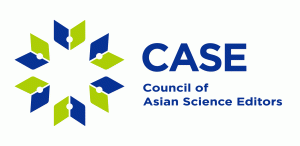Series of Online Workshop HEBII 2020
Himpunan Editor Berkala Ilmiah Indonesia (HEBII) or Indonesian Association of Scientific Journal Editors (IASJE) is a non-governmental, non-partisan, and non-profit organization where the editorial boards of Indonesian journals gather. HEBII aims to increase the editorial board’scapacity in managing scientific journals to improve the quality of journals and accelerate their internationalization process through information exchange between the editorial boards. HEBII is the official representative of the Council of Asian Science Editors (CASE) in Indonesia.
One of HEBII’s work programs under the Education and Training Commission is managing training activities for journal editors. Due to the COVID-10 pandemic, journal workshops were conducted online this year. A total of 3 webinar activities were held consecutively from August-October 2020.
Online Workshop I opened a series of online workshop activities that were held on Monday, 24 August 2020 with speakers Prof. Dr. Komang G. Wiryawan (Chairman of HEBII) and moderator Dr. Sri Suharti (Secretary General HEBII). The first online workshop theme was the Strategy and Criteria for the Evaluation of Scientific Journals in SCOPUS. This webinar activity was held with the consideration that the number of scientific journals in Indonesia is huge, but in terms of quality it still needs improvement, besides that, to accommodate the enthusiasm of journal editors who want to increase their capacity to become reputable international journals. For information, as many as 64 Indonesian journals from various science fields have been indexed in SCOPUS in 2020. With the increasing number of Indonesian journals indexed in SCOPUS, it is hoped that it can increase the publications’ visibility, give access to global audiences, track the performance of your publication, and monitor competitive publications. In addition, one of the benefits that are no less important is that it can accommodate Indonesian researchers’ publications to promote and improve their readability at the international level.
A total of 95 editors from various scientific journals in Indonesia, both members and non-members of HEBII, participated in this first workshop. Some of them are in the preparation stage or are awaiting the results of the SCOPUS assessment. Various questions related to good journal management and international standards, indexation requirements at SCOPUS, and penalties were raised and discussed. Included among them are the minimum requirements for registering SCOPUS, such as the availability of peer-reviewed processes, English abstracts, regular publications, Roman script references, and publication ethics statements.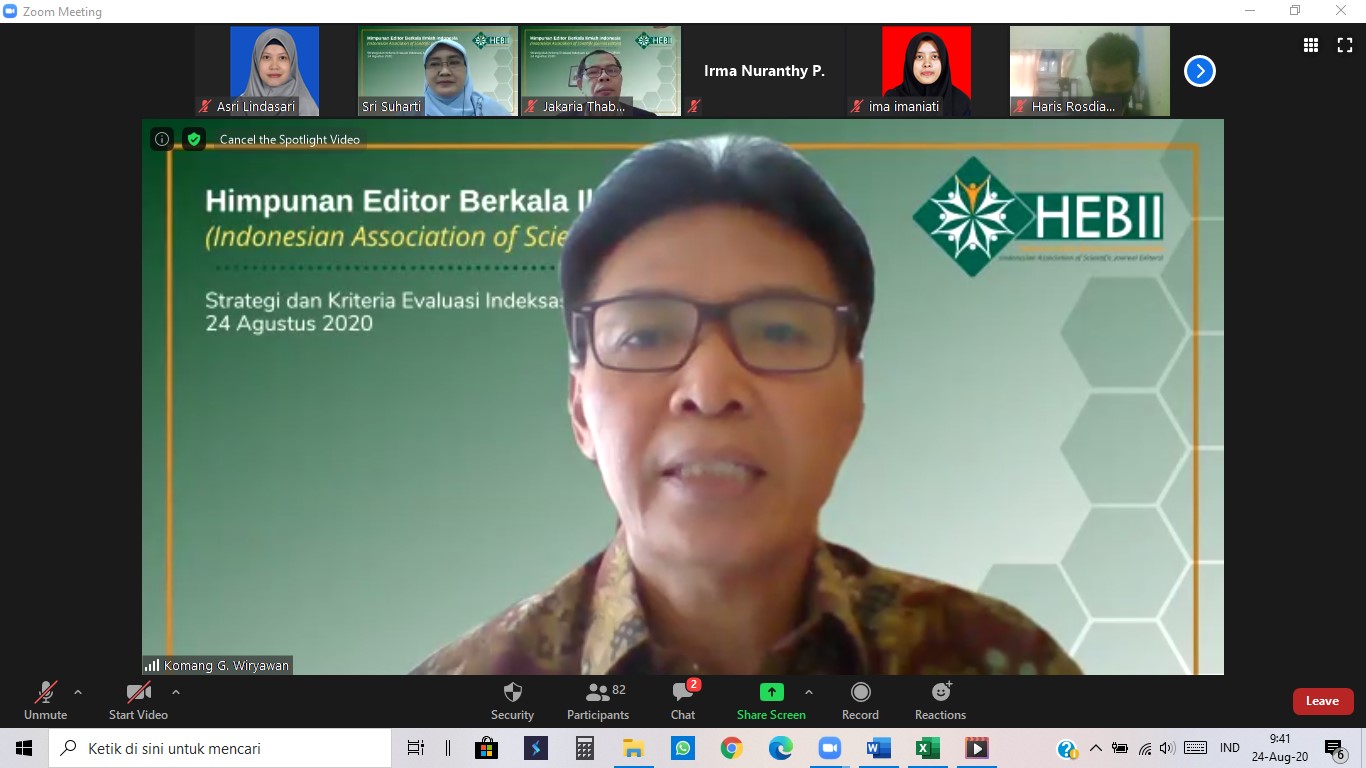
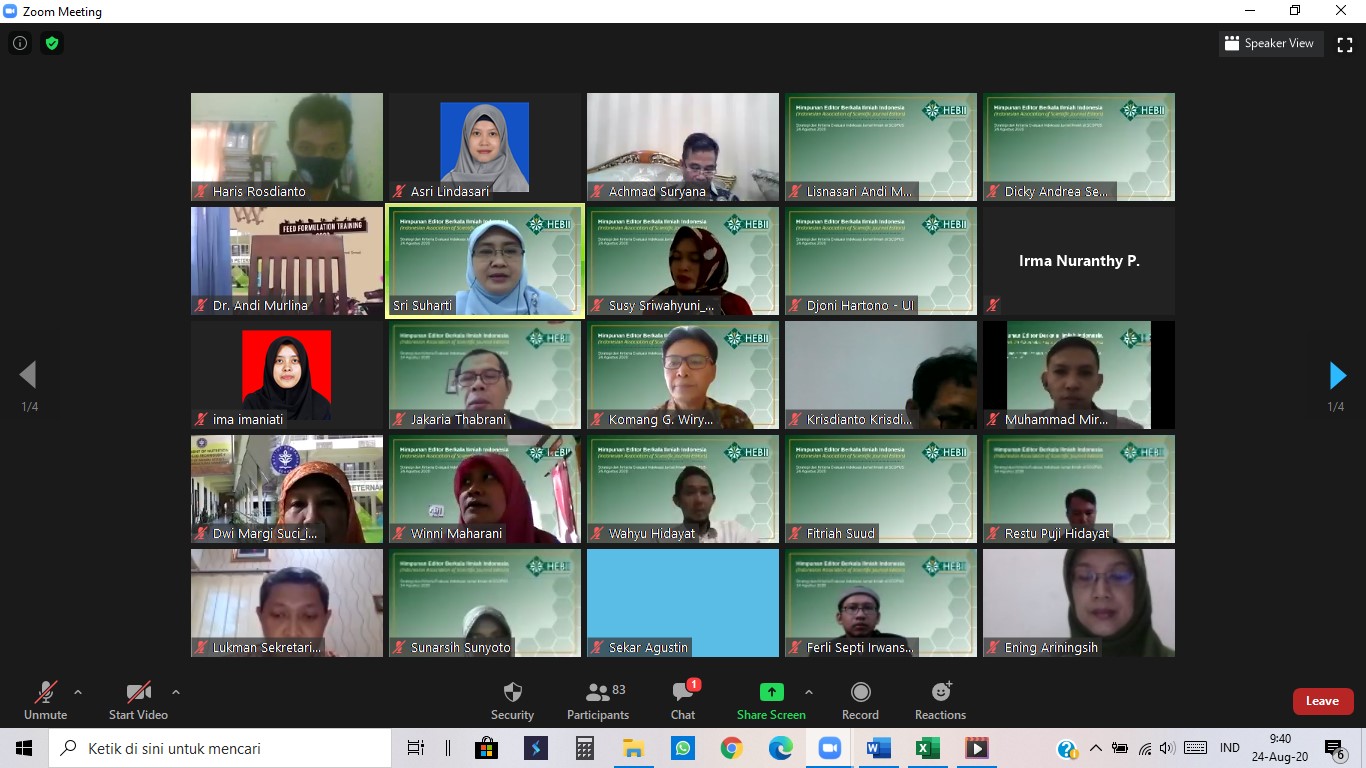
Online Workshop II was still related to increasing journals to become internationally reputable journals with the theme Strategy and Evaluation Criteria for the Indexation of Scientific Journals on the Web of Science. The second webinar was held on Thursday, September 24, 2020 with Prof. Dr. Istadi, S.T., M.T. (one of the scientific journal experts in Indonesia as well as a DIKTI expert team from Diponegoro University) as speaker and Prof. Dr. Ir. Kuswanto, MS. (Vice Chief II HEBII) as moderator. A total of 84 participants who are editors of various scientific journals in Indonesia have participated in the workshop. Even though there have been 87 Indonesian journals indexed in the Emerging Science Citation Index (ESCI), unfortunately, until now there is no journal in Indonesia has been indexed by the Expanded Social Sciences Citation Index (SSCI) / Science Citation Index (SCIE). Journals that show good citation impact on the ESCI will be submitted to the SCIE or SSCI. Journals indexed in SSCI/SCIE will get Impact Factors, increasing their readability and journal prestige at the international level. Apart from that, several requirements and tips for indexing in ESCI were also presented in this webinar.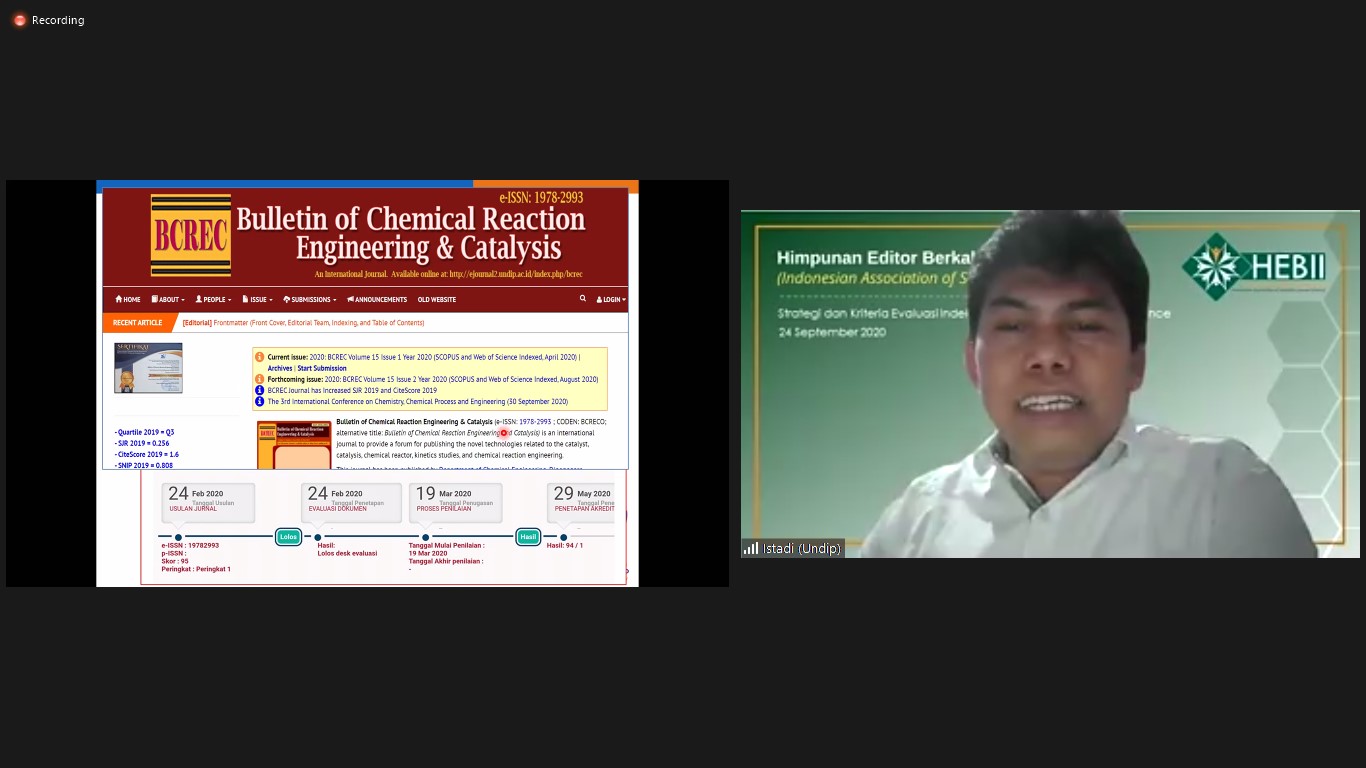
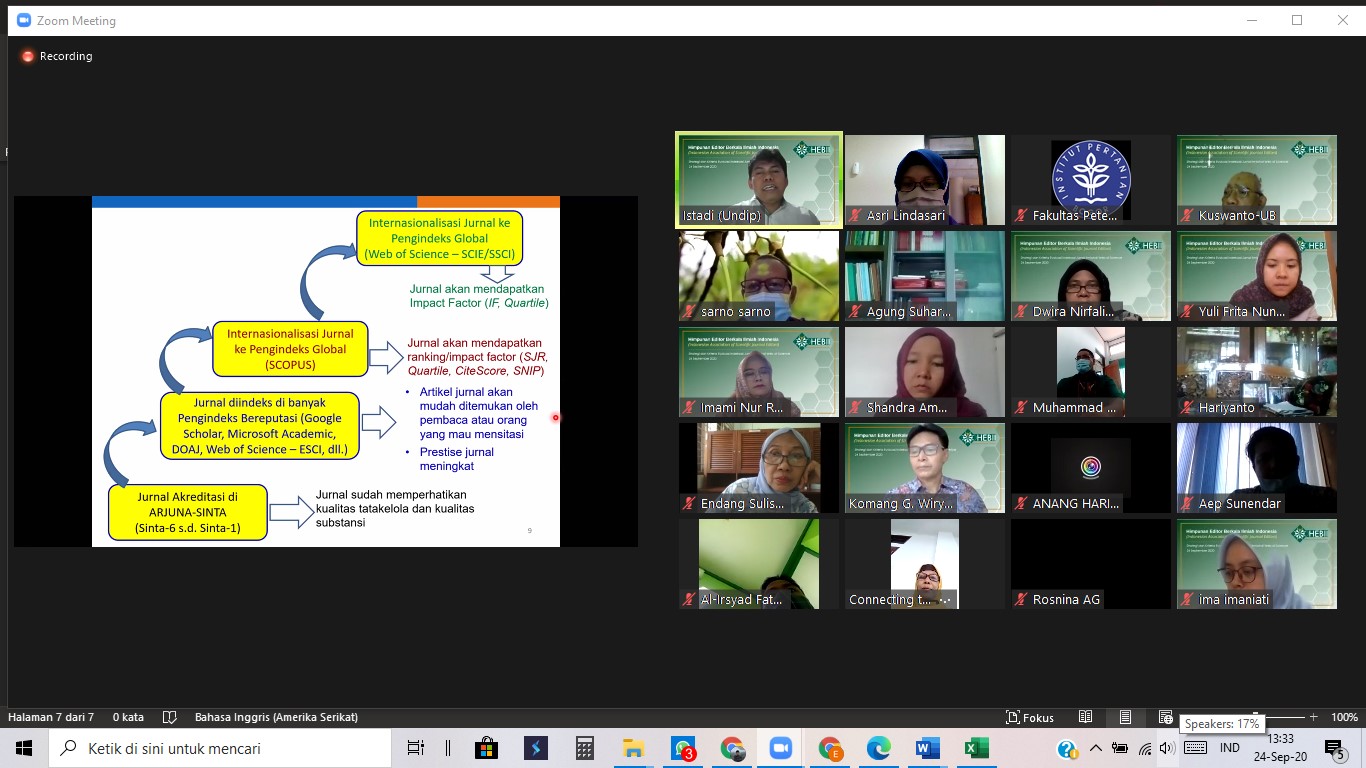
As the final series, Online Workshop III had a theme Crossref Services and Indexation of Scientific Journals at DOAJ. This activity was held on Thursday, October 22, 2020, which was attended by 23 journal editors. The first speaker was M Tanzil Multazam, M.Kn. (Crossref Ambassador for Indonesia from Muhammadiyah University Sidoarjo) for Crossref Services topic and Muhammad Ridwan Harahap, M.Si. (Chief Editor of Elkawnie journal from UIN Ar-Raniry Banda Aceh) for the DOAJ topic and Dr. Jakaria (Coordinator of the Education and Training Commission from IPB University) as moderator.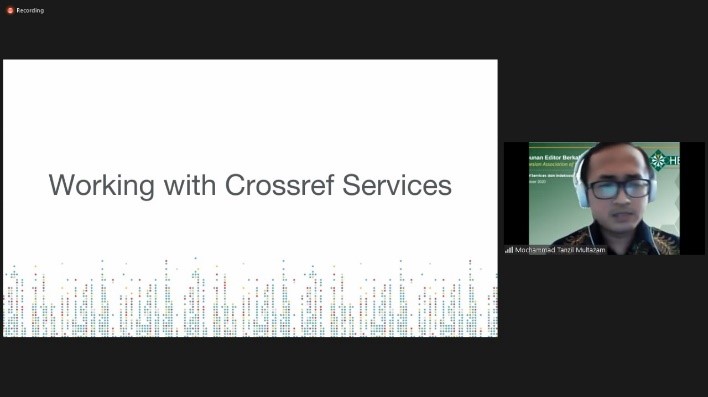
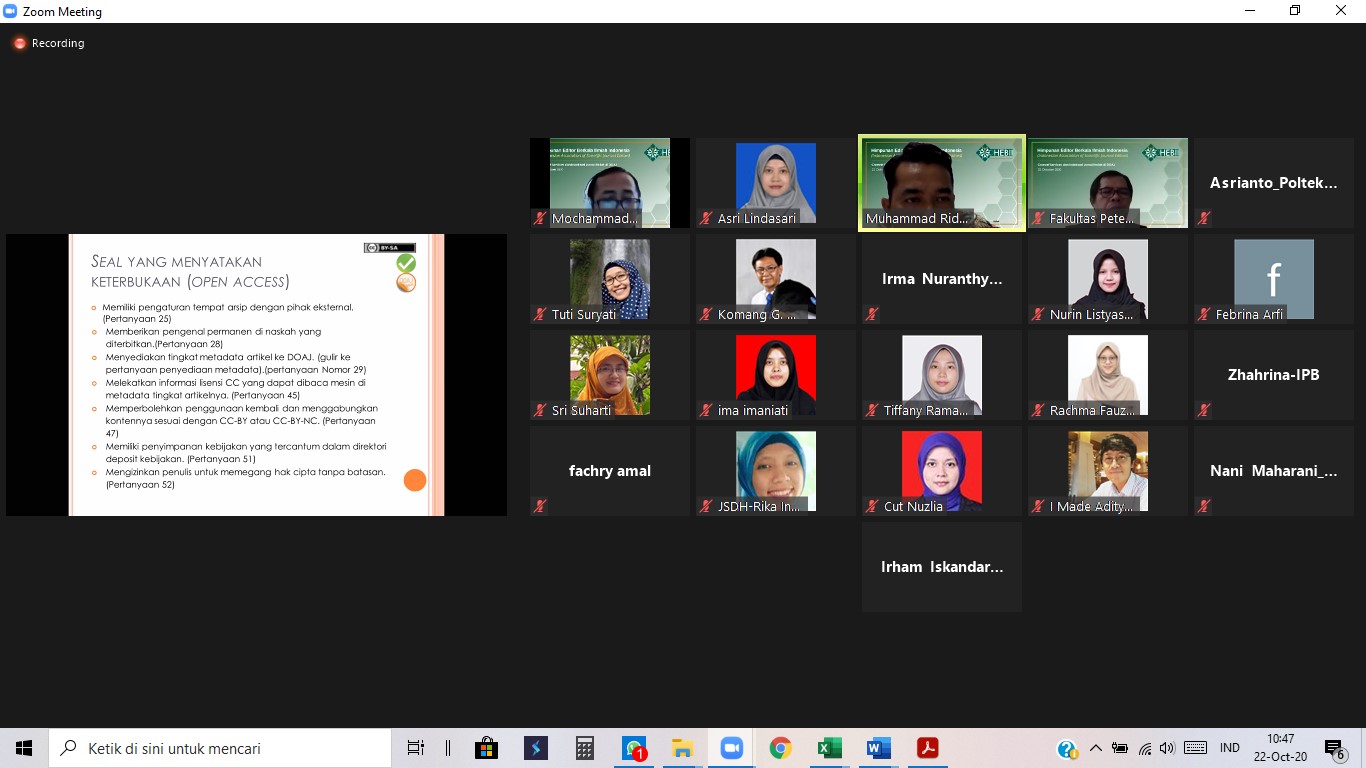
The number of Crossref members in Indonesia is huge, about 1,812 members. However, the known and used services are very limited; most of them only recognize Content registration for DOI articles and some have used Similarity Check to check plagiarism (this content is paid). There are several other services that can be used free of charge to maximize the benefits of Crossref (makes research outputs easy to find, cite, link, assess, and reuse), such as the Funder Registry (Contain list of funding body that acknowledges or inserted in the funding section of the document), Crossmark to reassure readers that they’re keeping their content up-to-date and showcase additional metadata, Reference Linking, and others. Apart from introducing other Crossref services, we also discussed several ways to register the contents to get DOI through the OJS Crossref plugin, Web deposit form, Metadata Manager, and XML. The presentation of DOAJ topic was intended to facilitate and assist journals that were still new or old journals that were not yet developed, and intended to increase their readability at the international level through quality open access directories which were easier to reach than SCOPUS or the Web of Science. Participants were given information on how to prepare their journals to submit to DOAJ to avoid being banned and register.
Himpunan Editor Berkala Ilmiah Indonesia
(Indonesian Association of Scientific Journal Editors)
Secretariat
Gd. Fakultas Peternakan IPB, Jalan Agatis, Kampus IPB Darmaga, Bogor 16680, Indonesia
Email: asosiasieditor@gmail.com; Website: http://indonesianeditor.org/
